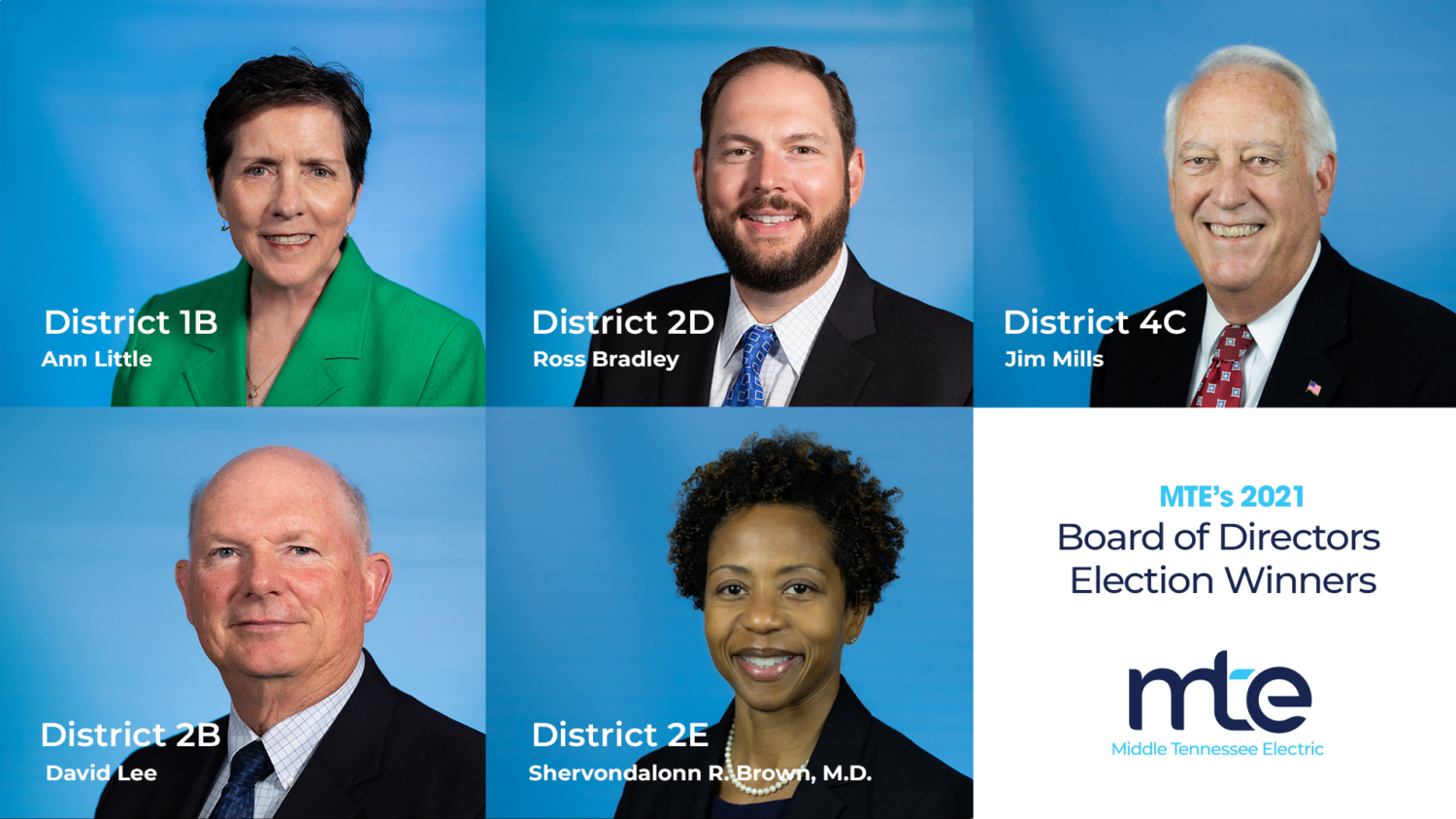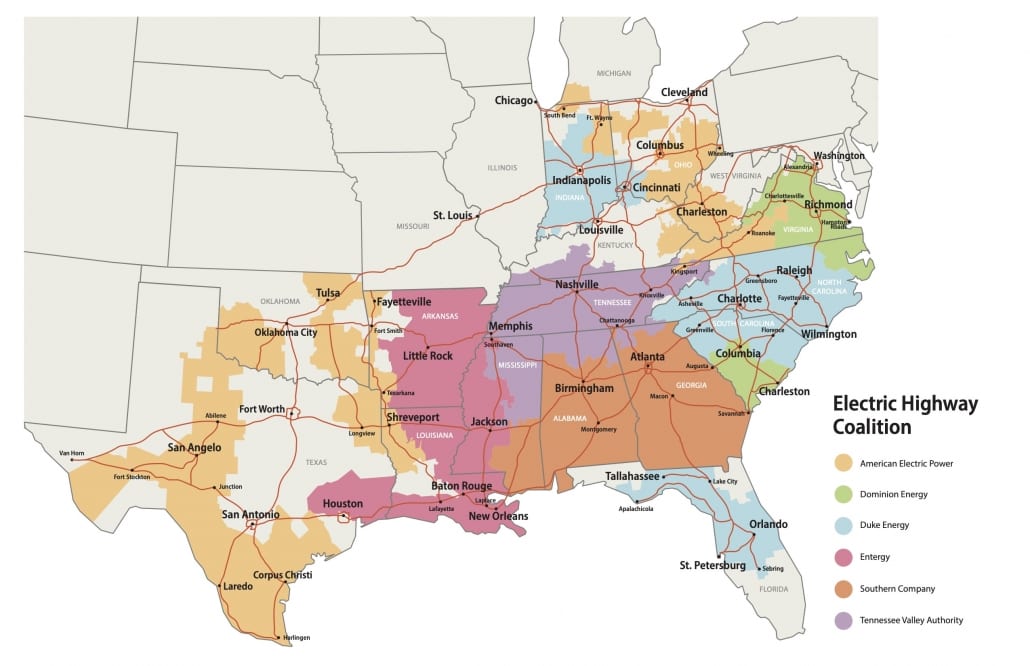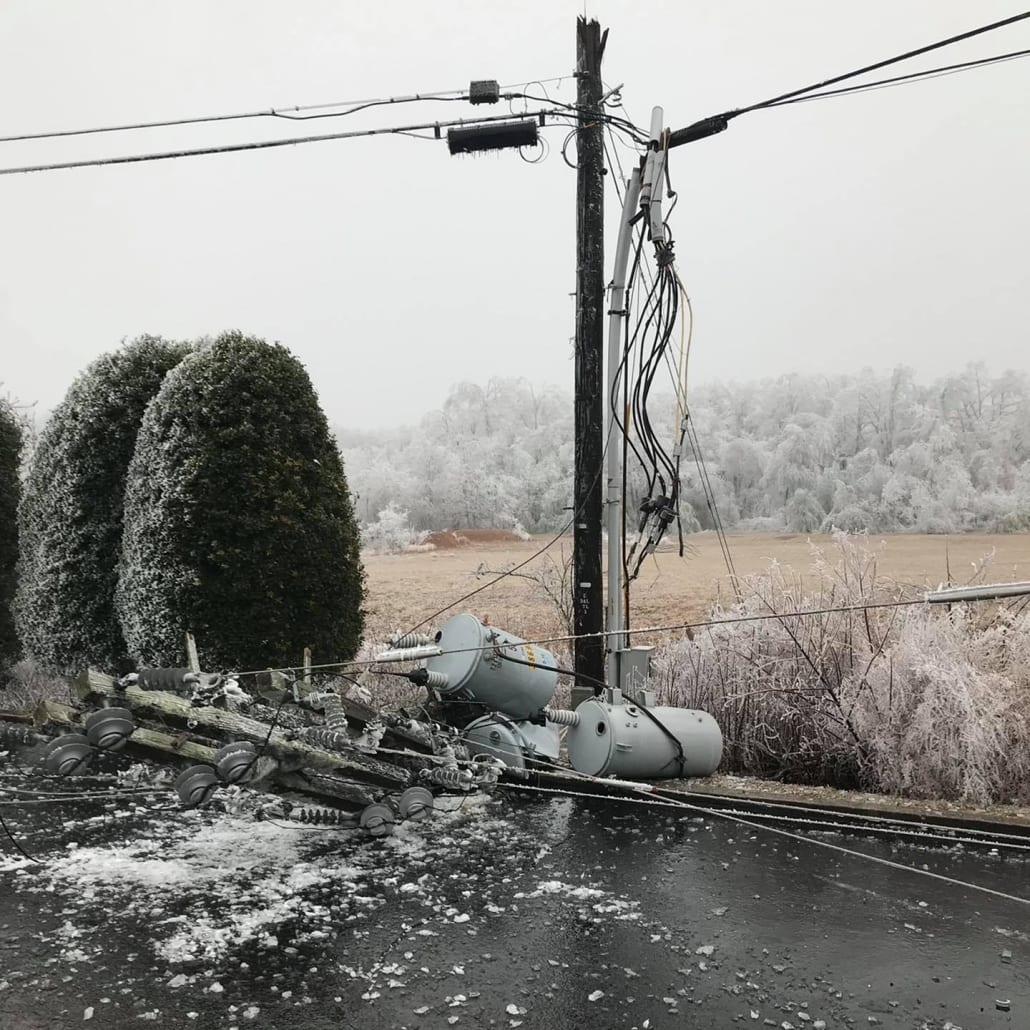MURFREESBORO, TN – Middle Tennessee Electric (MTE) leadership updated cooperative members on the organization’s health and answered questions directly from its members during its Annual Meeting, held virtually Aug. 28.
In their report to the membership, Board Chairman Mike Woods and CEO Chris Jones discussed the major components that made 2020 an unusual but successful year. MTE’s merger with Murfreesboro Electric Department in July of 2020 increased the organization’s membership to 315,000 members, making it the second-largest electric membership cooperative in the United States. To celebrate the merger and the start of a new era, MTE rolled out a new branding campaign, including a new logo, for the combined company. It was just the third such change since MTE’s founding.
The COVID-19 pandemic impacted every element of the way MTE operates, and leadership acted quickly to implement policies and practices that would ensure the safety of members and its employees while continuing to maintain high standards of service. MTE line crews worked tirelessly last February to restore power after a devastating ice storm wiped out power for thousands of members. In addition, Woods and Jones touched on subsidiary United Communications’ continued efforts to expand its broadband footprint to members.
“Though 2020 was a difficult year in many ways, I am proud of how the entire MTE team pushed through and stepped up to provide assistance to our members when it was needed the most,” said Jones. “Ultimately, this year allowed us to evolve and expand in ways that will continue to have a positive impact on our community.”
A business session followed the video presentation, during which Treasurer Jim Mills spoke about the healthy financial position of the organization.

Per the cooperative’s bylaws, the results of the election for five seats on the Board of Directors were announced during the Annual Meeting. Five members were re-elected: Ann Little – Williamson County, David Lee – Rutherford County, Ross Bradley – Rutherford County, Dr. Shervondalonn Brown – Rutherford County, and Jim Mills – Wilson County.
MTE board members serve staggered three-year terms, and the Nominating Committee is responsible for nominating next year’s board of director candidates.
The 2021 Nominating Committee election resulted in the appointment of Donald Lampley, Karen Paris and Juanita Patton from District 1 – Williamson County; Thomas “Teb” Batey, Jamey Faulkner, Danny Sapp and Richard Stone from District 2 – Rutherford County; Jeanne Melton from District 3 – Cannon County; and Zachary Butler, Ken Howell and Quintin Smith from District 4 – Wilson County.
In an organizational meeting following the Annual Meeting, the board re-elected Mike Woods of Rutherford County as chairman, Steve Seger of Williamson County as vice chairman and Jim Mills of Wilson County as secretary-treasurer.
A Q&A session was conducted and questions from members were answered live. Members inquired about broadband, COVID, member programs and a variety of current topics.
“It would have been wonderful to see our members in person at this year’s Annual Meeting, but we are grateful that we are still able to share information, gather feedback and keep our members updated in a comprehensive manner,” said Woods. “Our members are the backbone of MTE, and we are honored to fulfill our purpose of making their lives better.”
Robert White (L), Vice President of Member Services and Community Relations, and Chris Jones (R), MTE President and CEO, during the Q&A session. Image via WGNS.







